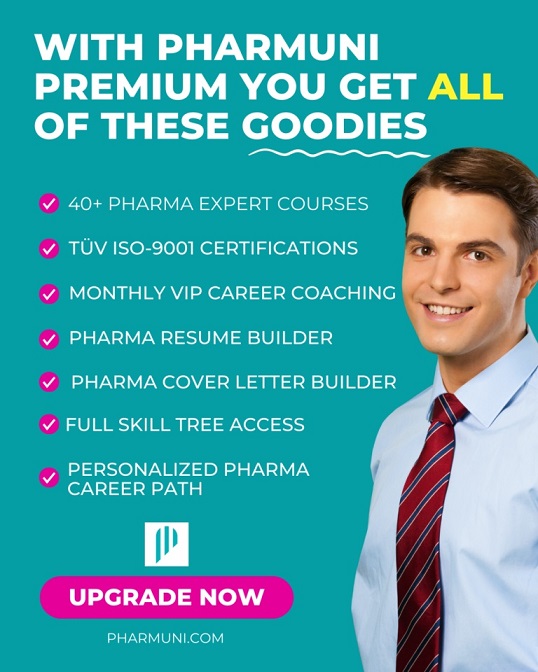Are you ready to step into one of the most dynamic and rewarding career paths in healthcare? A pharma marketing career offers high growth potential, industry influence, and the chance to impact patient outcomes. In this blog, you’ll discover everything you need to know to win at pharma marketing jobs: from key roles and required skills to trending strategies and real-world comparisons.
Whether you’re new or experienced, this guide will help you navigate your way to success in the pharmaceutical marketing field. Let’s begin.

Pharma Marketing Career Main Focuses
A pharma marketing career focuses on promoting pharmaceutical products and medical devices to healthcare professionals, institutions, and consumers. The goal is to ensure market success while complying with strict regulatory guidelines. In recent years, global healthcare demands and personalized medicine have accelerated growth in pharma marketing jobs.
In the U.S. alone, digital ad spend in pharma has crossed $19 billion, with key roles like pharmaceutical sales representative, Medical Science Liaison (MSL), and regulatory affairs specialist in high demand. Additionally, advanced roles like pharma marketing manager are expanding rapidly, requiring cross-functional knowledge, analytics skills, and regulatory insight.
7 Main Categories of Pharma Marketing Responsibilities
Define brand goals, segmentation, and value propositions.
Execute compliant multichannel campaigns.
Build relationships with Key Opinion Leaders.
Ensure FDA/EMA-compliant content.
Leverage Google Trends for pharma marketing and data platforms.
Support field reps with materials and e-detailing.
Use pharma marketing analytics and CRM dashboards.
Each responsibility contributes to market success and patient safety. Pharma marketing manager responsibilities demand mastery of these areas.
Explore Your Future in Pharma
What Are the Core Objectives Behind a Pharma Marketing Career?
1-Communicate Scientific Value Clearly
Pharma marketers must translate complex clinical data into clear, actionable messages. This builds trust with physicians and empowers patient choices. Clear messaging also drives direct to consumer (DTC) advertising pharma efforts.
2- Ensure Ethical, Evidence-Based Promotion
All messaging must align with Pharma marketing regulations such as the PhRMA Code. Professionals must avoid off-label promotion issues and follow the Uniform Code of Pharma Marketing Practices to retain credibility.
Want to master these skills? Join our expert-led coaching: Unlock Your Dream Pharma Career
What Skills Set Top Pharma Marketers Apart?
Technical and Analytical Thinking
Technical and analytical thinking helps pharma marketers make smart, data-driven decisions every day. First, professionals must study market intelligence in pharma to understand trends, competitors, and customer needs. Then, they must turn that knowledge into action using real data. For example, when a new drug launches, they should analyze early sales data and market feedback. With this insight, they can quickly adjust campaigns to improve performance and reach more healthcare professionals.
Next, professionals must apply data-driven outcome measurement tools to track success clearly. These tools show what works and what needs improvement. For instance, by using CRM dashboards, marketers can see which channels bring the most engagement. They can also follow performance metrics to measure the impact of KOL engagement or HCP detailing. As a result, they make faster and better decisions. In the end, analytical thinking ensures every campaign supports the company’s goals and improves patient outcomes. It’s a must-have skill in any pharma marketing career.

Communication and Compliance Mastery
Communication and compliance mastery helps pharma marketers succeed in a complex, regulated industry. First, they must present scientific data clearly and avoid confusing messages.
Then, they should adjust content based on the audience—whether doctors, patients, or regulators. Also, strong communication builds trust and helps brands stand out in crowded markets. Marketers should speak with confidence, use easy-to-understand language, and support every claim with real evidence. This approach creates lasting impact and better engagement.
Next, marketers must follow strict pharma marketing regulations in every campaign. They should always check content with regulatory affairs specialists before launch.
Together, they ensure that messages follow FDA and EMA guidelines. Marketers should also stay up to date with changes in the PhRMA Code and other global rules. This prevents mistakes and protects the company from legal risks.
As a result, compliance becomes a key part of every marketing plan. With strong communication and full compliance, marketers can lead successful and ethical campaigns.
What Are the Best Tools in a Pharma Marketing Career?
E-Detailing Platforms & CRM Systems
Tools like Veeva CRM help pharma marketers track and manage physician interactions easily. First, they organize contact details, meeting notes, and campaign responses in one place. Then, marketers use this data to plan personalized follow-ups. Also, they monitor engagement trends and adjust messaging quickly. As a result, Veeva CRM improves campaign targeting and builds stronger relationships with healthcare professionals.
Social Media & Programmatic Ads
Social media in pharma marketing is growing quickly across global markets. First, marketers use platforms like LinkedIn and YouTube to reach healthcare professionals and patients. Then, they combine this with programmatic ads to target specific audiences. Also, these tools provide real-time feedback and boost engagement. As a result, campaigns become more effective, scalable, and tailored to audience needs.
5 Key Trends Driving Pharma Marketing Career Growth
- AI in pharmaceutical marketing is optimizing campaign targeting.
- Programmatic CTV and digital channels are reshaping HCP engagement.
- Personalized medicine marketing requires new messaging approaches.
- Generative AI in pharma R&D supports scientific content creation.
- PPC / Paid search in pharma is rising due to measurable ROI.
These trends require professionals to adapt fast and learn continuously.
Conclusion: Build Your Career Strategy
A pharma marketing career isn’t just a job; it’s a mission-driven profession that blends science, ethics, and business. With rising global demand, evolving strategies like DTC advertising and AI, and diverse roles like MSL and CRA, this is a future-proof field.
Don’t guess your next move. Use the Pharmuni Career Path to get clarity, confidence, and coaching for success in pharma marketing jobs. Start winning today.
References

Ershad Moradi
Ershad Moradi, a Content Marketing Specialist at Zamann Pharma Support, brings 6 years of experience in the pharmaceutical industry. Specializing in pharmaceutical and medical technologies, Ershad is currently focused on expanding his knowledge in marketing and improving communication in the field. Outside of work, Ershad enjoys reading and attending industry related networks to stay up-to-date on the latest advancements. With a passion for continuous learning and growth, Ershad is always looking for new opportunities to enhance his skills and contribute to pharmaceutical industry. Connect with Ershad on Facebook for more information.

Master GxP Validation in 2026: Meaning, Key Steps, and Validated State Control
Auditors want evidence you can trace, not opinions you can explain. GxP validation links intended use, requirements, risk, and test results into one story. When you control changes and review performance, you keep the system inspection-ready every day on time.

Master GMP Compliance in 2026: Meaning, Core Elements, and How to Implement
GMP compliance keeps medicines safe, consistent, and traceable across every batch. This guide explains core GMP elements, practical rollout steps, and common pitfalls. It also shows how to strengthen training, documentation, data integrity, and audit readiness.

History of Pharmacovigilance: From the Thalidomide Crisis (1961–2026) to GMP Oversight
Thalidomide in 1961 changed drug safety forever. Since then, pharmacovigilance has grown from crisis response to proactive risk management. Today, teams track signals, tighten reporting rules, and connect safety data to quality systems. As a result, PV now links directly to GMP oversight, audits, and data integrity.




